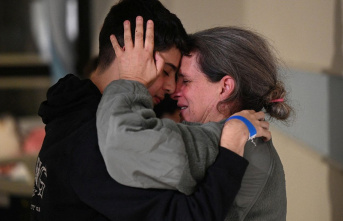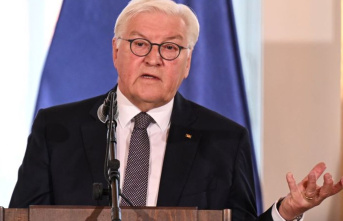According to official information, the police in the South Caucasus republic of Georgia arrested 66 demonstrators during the night during the heavy protests against the controversial "agent" law.
The Interior Ministry accuses those arrested of minor hooliganism and resistance to state authority, Georgian media announced today. Yesterday, the parliament in Tbilisi passed the draft law "On the Transparency of Foreign Influence", which officially aims to disclose money flows from abroad, by a majority in the first reading. Critics fear that the Georgian provision could be modeled on a similarly worded law in Russia.
Violent clashes with the police
Several thousand people took to the streets in the capital Tbilisi against the controversial law against "foreign agents". In the evening there were violent clashes with the police, who dispersed the people with tear gas, smoke grenades and water cannons. For their part, the demonstrators tried to storm the parliament building. The opposition has already announced new protest actions for the evening.
The President of the ex-Soviet Republic of Georgia, Salome Zurabishvili, has meanwhile addressed the demonstrators and assured them of their support. She will veto the law if it is passed by Parliament. Civil rights activists fear that passing the law will undermine Georgia's democracy and worsen the country's prospects for EU membership. A similar law in Russia has been taming the opposition for years.
Baltic states react with concern
The foreign ministers of the Baltic states have expressed serious concern over a controversial new rule on "foreign agents" in Georgia. The draft law "On Transparency of Foreign Influence" adopted by the parliament in Tbilisi at first reading raises serious questions about the prospects of democracy in the Caucasus republic, Urmas Reinsalu (Estonia), Edgars Rinkevics (Latvia) and Gabrielius Landsbergis (Lithuania) said on Wednesday in a joint statement with
"We call on the Parliament of Georgia to responsibly assess the country's true interests and refrain from taking decisions that could undermine the aspirations of the Georgian people to live in a democratic country closer to the EU and NATO," they wrote Chief diplomats of the three Baltic EU and NATO countries. At the same time, they called on the Georgian government to respect the people's right to peaceful protest.
Estonia also summoned the Georgian ambassador to Tallinn to express "great dissatisfaction with the decision of the Georgian parliament". "The law is in clear contradiction to Georgia's previous efforts for rapid Euro-Atlantic integration," it said in a statement.











